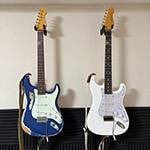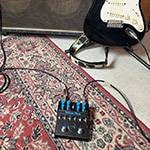Should I loosen the strings when I don't play the guitar and when I store it? It's a question that almost everyone will ask if they play the guitar, regardless of type, but in the end, it's surprising that no one can confidently say they "should be loosened" or they "should not be loosened". This time, I would like to write my own thoughts on the question that is as difficult as the conflict of opinions regarding a certain sweet.
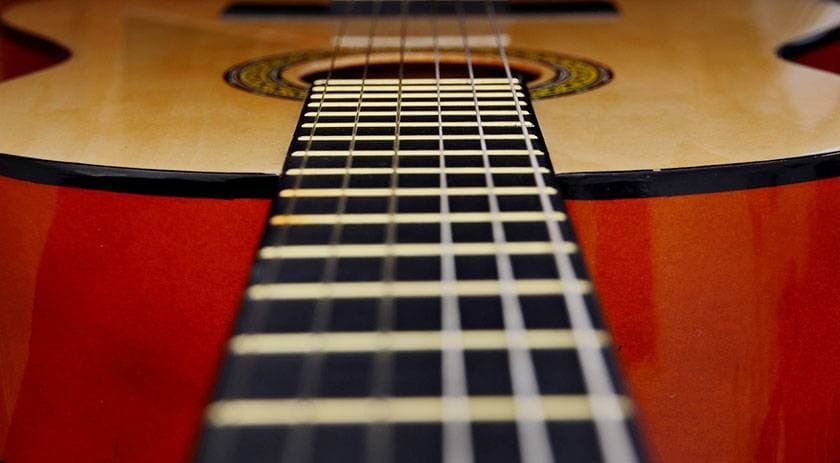
1. Starting from the conclusion, it isn't necessary to loosen the strings in principle!?
Out of the blue, from the conclusion, I think, "If you maintain it properly, you basically don't need to loosen the strings". The main premise here is that you are "properly maintaining". Let’s go through a step-by-step explanation of why you don't have to "almost" loosen the strings (it's better not to loosen them) and how to maintain them properly.
2. Why you "almost" never have to loosen the strings (why you shouldn't loosen them during storage)
In order to play the guitar, it is natural that you have to apply tension to the strings to tune, but the tension applied to the strings at this time cannot be ridiculously high, and in the case of the light gauge strings of an acoustic guitar, a total of 70 kg or more for the six strings, and even for an electric guitar, a tension of about 30 to 40 kg will continue to be applied. When you hear that, you may think, "If it puts a heavy burden on it, you should loosen them when storing it!" But I can't say that. Rather, it can actually be a burden on the instrument to repeatedly apply and release tens of kilograms of tension. Even in the case of guitars, the strings are often completely loosened and stretched so that if a thin aluminum plate is repeatedly bent and stretched, it will eventually crack at the bent part due to metal fatigue. If you do this, you are more likely to have problems somewhere else.
In the first place, guitars are built on the premise that they can withstand the tension of the strings (if they are made properly), so even if you keep the strings stretched, you shouldn't have any problems all that easily. In fact, I have kept the strings taut on an acoustic guitar I made for several years without loosening them, except during string replacement and maintenance. But problems such as neck warpage, top bulge, and joint floating have not occurred. Some of my guitars have been stored "completely" experimentally without loosening the strings, but so far there are no problems at all.
However, as long as the tension of tens of kilograms continues to be applied, it is certain that I am a little uneasy. So, if you're worried about keeping it fully tuned, you can loosen the strings a little and store them. Semitone to full tone down tuning and tuning to DADGAD from the 6th string in order is recommended because the load on the entire neck is relatively uniform and the burden on the instrument due to loosening is minimized. This is the meaning of "almost" never loosening, as I said from the beginning. The strength of musical instruments varies depending on the manufacturer and individual guitar, so if you try from this area first, you can store it with more peace of mind.
3. "Proper storage method"
Finally, I will explain "proper storage method". Not loosening the strings when storing the guitar also means that the force that causes the neck to bend forward is always at work, and it is necessary to store the instrument taking that into consideration. Some of you may already be familiar with it, but in the end, the important thing is to choose a stand (hanger). By choosing a stand or hanger that does not burden the neck or body as much as possible when storing the guitar, the condition of the instrument will be surprisingly stable.
The first thing I would like to recommend is a wall-mounted guitar hanger. Definitely a good idea. Gravity is applied to the neck and body in a straight line by hanging the guitar on the wall, so even if the tension of the strings cannot be offset, the load can be significantly reduced. Especially recommended are the types that lock using the weight of the guitar, such as HERCULES and ULTIMATE. Since you have to leave your guitar in a high position on the wall, the mechanism that prevents it from falling unexpectedly is encouraging.
HERCULES STANDS / GSP38WB PLUS
HERCULES STANDS / GSP39HB PLUS
The type that bolts directly into the wall is the most secure, but if it is difficult for some reason, there is also a type that can be hung from a steel rack, so it may be better to use a grid-type partition. Regular checks are essential, but ...).
If you're afraid to hang it high on the wall, or if you don't have enough space on the wall to hang it anymore, the next best thing is to use a floor stand that allows the guitar to be hung from the head.
HERCULES STANDS / GS415B PLUS
On the other hand, I do not recommend using a stand that supports the neck from the grip side or leaving it in the case. The former may promote the warp of the neck due to the tension of the strings, and the latter may cause moisture retention and deterioration of the finish. If you really want to store it in the case, you should use a humidity control agent or a hygrometer inside the case to make sure that it can be maintained in an appropriate state before starting storage. However, be careful not to over-trust your case, as most cases are not completely airtight.
Boveda / B49
PICKBOY / H-95 DRYKEEPER
4. Important point
I've talked a lot, but these are the important points
- Store it in a suitable environment for your instrument.
- The instrument must be properly adjusted.
This is the premise. It is out of the question if the production of the instrument itself is poor in the first place, but no matter how well the instrument is hung on a good hanger or stored, it is meaningless without these two points. I will write about each in a separate article, so first of all, please check if you can properly follow these two points.
In addition, the details explained so far are only in the case of storing musical instruments at home. During long-distance travel and transportation, impacts and other factors come into play, so it is safer to loosen the strings completely in these cases. Please keep these details in mind.





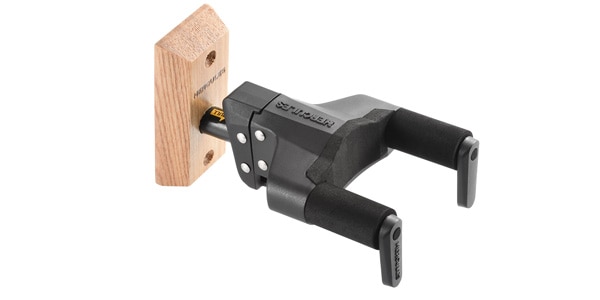
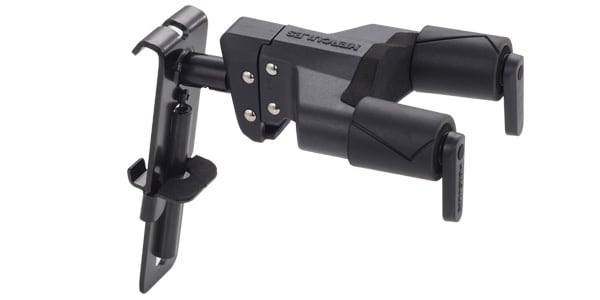
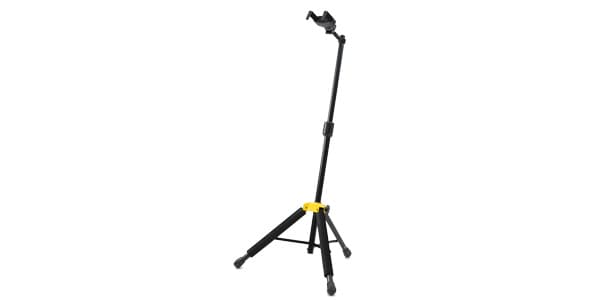



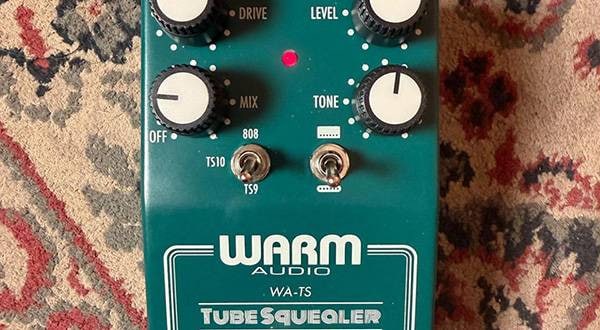
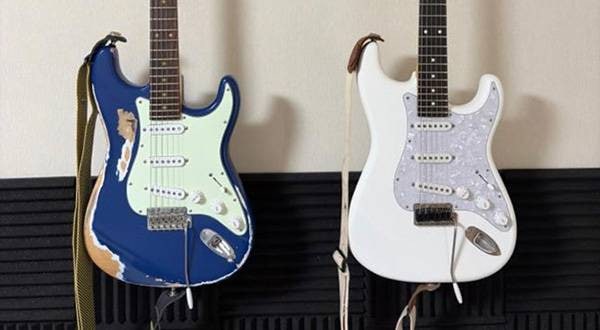


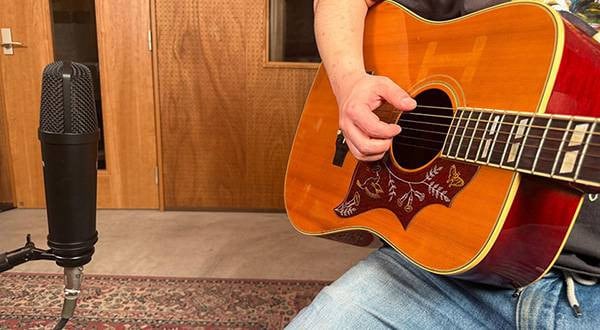
 音を合わせる(チューニングの方法)
音を合わせる(チューニングの方法)

